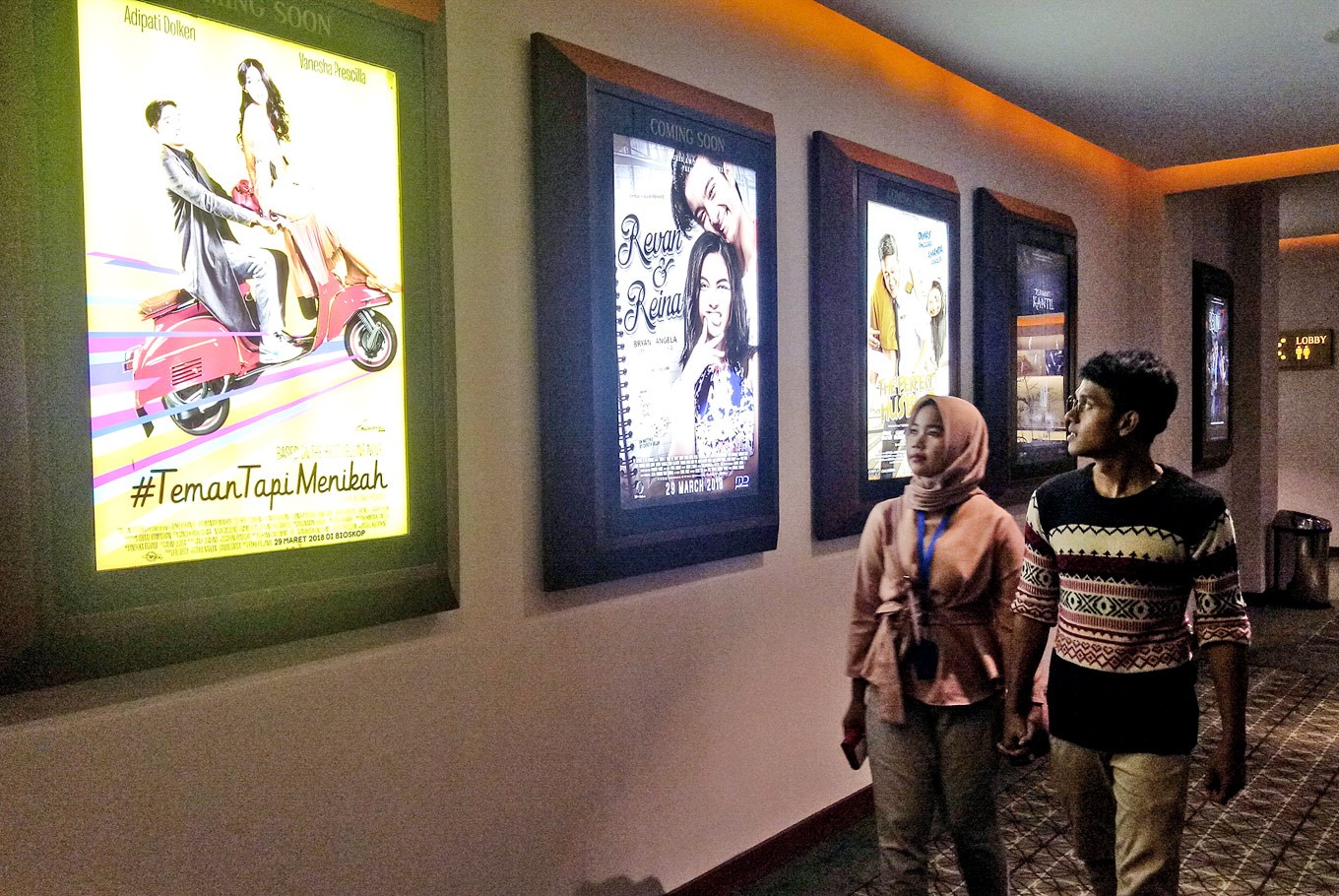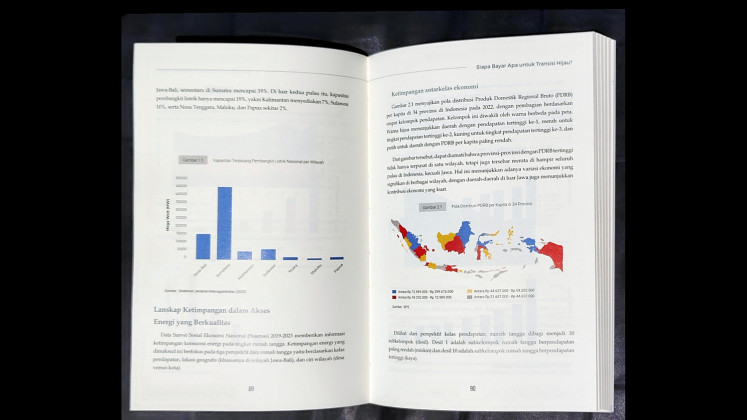Popular Reads
Top Results
Can't find what you're looking for?
View all search resultsPopular Reads
Top Results
Can't find what you're looking for?
View all search resultsMarketing, social media and a film's success
Some figures in the film industry have observed that the habits of Indonesian film-goers can be seen on social media.
Change text size
Gift Premium Articles
to Anyone
 What’s on: Visitors look at a film poster inside Summarecon Mal Serpong XXI in Tangerang, Banten, on Wednesday. (JP/Aditya Bhagas)
What’s on: Visitors look at a film poster inside Summarecon Mal Serpong XXI in Tangerang, Banten, on Wednesday. (JP/Aditya Bhagas)
W
hen was the last time you were genuinely interested in or excited about going to watch an Indonesian film? Was it one that you read about and piqued your interest? Or was it one that people talked about so much on the internet that you just had to check it out?
The influence of social media on Indonesian opinions, whatever they might be on, is growing massively each year, indirectly affecting those whose work is at the mercy of those opinions.
For filmmakers and producers, there is an increasing importance for the film to pay influential people to promote their films, and also to employ individuals whose job it is to promote the film while acting naturally: a practice that has been termed “buzzing”.
But is it really effective for the industry? Apparently for some it is, but for others, marketing the content quality is more important than generating hype.
Some figures in the film industry have observed that the habits of Indonesian film-goers can be seen on social media. Usually one can find celebrities talking or writing about local films with praise, but more often than not, their followers are skeptical as to whether the praise is genuine or paid for.
Producer Susanti Dewi, responsible for films such as Bajaj Bajuri The Movie and Jakarta Undercover, noticed the tendency on Twitter to call out relatively famous people for their tweets praising a certain film.
The trend, she says, seems to be an Indonesian one, as skepticism prevails among Indonesians on the internet whenever celebrities support local films.
“I follow P. Diddy’s account on Twitter, for example, and even though he didn’t have anything to do with the making of the Black Panther film, he tweeted he was behind the film ‘from day one’. I feel that it’s a method of supporting the film as a whole. It’s less likely someone is going to doubt his support by asking him ‘are you an investor?’ That’s what I observe happens here,” Susanti said.
Another target of such skepticism was actor Dion Wiyoko.
“I tweeted that I liked the [recent local] film Love for Sale, but I got some people on my feed asking me if I was paid to praise it. It’s weird really,” he said.
Indonesia is one of the world’s most social-media-active countries, with the most recent data from statistics firms Hootsuite and We Are Social showing the country experienced the third-highest increase in social media users, only behind Saudi Arabia.
As of January, there were up to 3.2 billion social media accounts in Indonesia, and a 23 percent year-on-year increase of social media accounts and users. This would amount to Indonesia having one new social media user every 11 seconds.
But despite the skepticism of many, the Indonesian film industry seems to be healthier than ever, giving the impression that more people than ever are flocking to see local films.
However, only two local films released between 2016 and 2018 have managed to attract more than 6 million viewers each.
The most successful film of 2018 so far is the nostalgic teen drama Dilan 1990, which has amassed over 6.3 million viewers since its première in January, while Eiffel I’m In Love 2 ranks as the 2nd most successful film this year, with 1 million viewers.
The awful first installment of the Warkop DKI reboot in 2016 attracted the most viewers to a local film in Indonesian history, with 6.8 million viewers, while the second installment in 2017 attracted 4 million.
However awful most of the nostalgia flicks may be, they have proven to be an effective weapon for the Indonesian film industry.
Another current trend that has been observed in the film industry is the increasing number of films that focus in on a popular topic among Indonesians: marriage.
But according to Dion, in the end, despite the intention behind any film, success today relies more on how the producers and the production houses market them and to what extent they want to make their production successful.
“If a film is produced under great circumstances, then we can all learn to appreciate it a bit more, and the audience will follow,” he said.
“Maybe bigger production houses have a bigger chance to schedule their releases around lucrative holiday dates and whatnot, but, to earn the trust of the public is another thing.”









